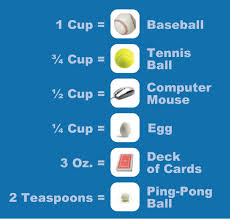There’s so many opinions out there!
Eat protein.
Eat low carbs.
Eat no carbs.
This diet. That diet.
What can I do?? What should I eat? And what should I avoid?
A good diet should provide plenty of choices, relatively few restrictions, and no long grocery lists of (sometimes expensive) special foods. It should be as good for your heart, bones, brain, and colon as it is for your waistline. And it should be something you can sustain for years. It should be easy to prepare, include flavorful food choices and should be acceptable to and useful for the whole family. Such a diet won’t give you a quick fix. But it can offer you something better — a lifetime of savory, healthy choices that will be good for all of you, not just parts of you.
Here’s one such. Let me give you a few simple principles for eating a healthy, balanced diet, incorporating best practices from DASH, Mediterranean diet and hormone balancing diets.
1. AVOID ADDED CARBOHYDRATES
Especially refined and processed carbs. This means – no wheat, rice, potatoes, certainly no packaged or bakery goods. Most certainly no sugar, no sugar equivalents, no sugar substitutes. Remember, sugar is POISON. Eat the occasional piece of fruit for your sweet craving.
2. Eat 9 to 13 servings of vegetables and fruit daily. This will give plenty of carbs for efficient metabolism. Aim for a ‘rainbow’ of 7 colors in food daily.
What is one serving? One cup uncooked, half cup cooked fruit or veg, quarter cup dried. One cup is the size of a closed fist.


Do not juice your fruit and veggies. The fiber, and the fullness it provides, is invaluable. Fruit juice is a source of concentrated calories and causes a sugar spike. Fiber, in addition to contributing to fullness, helps control diabetes, high cholesterol, maintains bowel health, helps maintain healthy weight and eliminate toxins. Recommended intake is:
|
Age 50 or younger |
Age 51 or older |
| Men |
38 grams |
30 grams |
| Women |
25 grams |
21 grams |
Institute of Medicine, 2012.
So make smoothies instead. That is, blend a combination of green leafy vegetables and veg you like, such as cucumber, tomatoes, capsicum, beans, with no sugar added. It is good if you add a tablespoon of coconut oil to this. It will be creamy and filling, and the medium chain triglycerides in the coconut oil are great for your brain and your hormones. vegetarians can add a scoop of good quality protein powder to boost their protein intake.
3. Protein with every meal.
Here I am writing as an almost-vegetarian Indian. Our breakfast, especially, is usually upma, poha, paratha – all carbs! There’s no protein there!
It’s important to get protein with every meal. Protein is more satisfying than carbohydrates or fats, and thus may be the new secret weapon in weight control. Getting enough protein helps preserve muscle mass and encourages fat burning while keeping you feeling full. Eating carbs makes you hungry soon after a meal. Eating protein keeps you feeling full. So be sure to include healthy protein sources, like yogurt, cheese, nuts, or beans, at meals and snacks.
How much protein? About 1g/kg body weight for an adult, more, around 1.5g/kg for the pregnant or lactating ladies, growing children and those exercising vigorously. How do we know how much we’re getting? Measure! Maintain a food diary. This will give total calories consumed, plus breakdown of major food groups, ie, carbs, protein and fats.
Avoid chargrilled meat as we have seen in a previous post.
Good quality protein – avoid processed, canned, deep fried stuff full of antibiotics and pesticides. Obviously. So no cold cuts. Grass fed, organically raised animals and poultry. If you can, organ meats are good.
4. Avoid snacks between meals. This helps balance hormones and increase insulin sensitivity. If really required, opt for a small serving of seeds and nuts. They contain healthy fats. And protein.

Sunflower seeds are good. Since they have to be cracked open, it takes time, so portion control is easier. In general, portion size is 1 oz, the amount inside a closed fist. Seeds such as sesame can be sprinkled on salads.
So a good way to incorporate all the above, is a large salad, with some fish, chicken, cheese or beans for protein, and some seeds for good fats.



5. Eat your last meal at least 2 hours before you go to bed. So that your body can concentrate on building and repair like it is meant to, not on digestion.
Home cooked meals prepared with fresh ingredients, avoiding convenience foods, no need to keep track of portion size – that’s it! What could be simpler!!!!
And don’t forget the exercise!
These diet principles, if followed with discipline, will help us live longer, healthier, free of disease and maintain healthy body weight. The principles work well if
- we are healthy, trying to remain healthy.
- we want to lose weight in a safe, healthy manner.
- we are diabetic. Just limit fruit servings to the occasional piece and avoid high glycemic fruits.
- those who have high blood pressure. Limiting salt intake is not necessary.
- most other health conditions.
As well as lose the football belly!
So a sample menu for the day would be:
Breakfast: Eggs cooked with plenty of butter / ghee/ coconut oil, with a side of spinach / Mushroom omelet.

For the vegetarians among us : sprouts. Dosa or idli made wholly with dal, no rice, and served with sambar and coconut chutney.
Lunch: Grilled meat or paneer with large salad as described above. Dal and sabzi for the vegetarians.
Dinner : Soup with plenty of veg, such as minestrone, and added beans or meat. / Thai curry with coconut.
Vegetarians: Paneer, tofu, lentils, dairy, nuts, for the protein. It is difficult to get protein in the proportions required on a strict vegetarian diet, and supplementation is recommended.
For mid- meal snacks when required, choose options like hummus with vegetable sticks, nuts and seeds, etc. Eating just twice a day allows the body to recover from the glucose overload, and so decreases insulin resistance and also increases growth hormone. Which are all good.

Notice that I have not included quantities. Its not crucial, because the fiber will keep you satiated.
This diet will keep you full, and will keep you healthy. Best, your waist size will drop! I lost 3 kg in 2 weeks on this diet. And I didn’t feel deprived ever!
Simple changes, with great results!



